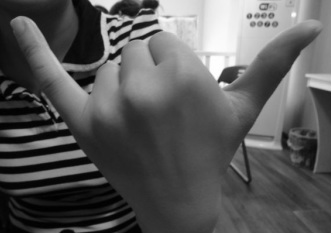 Confusing “Liù”
Confusing “Liù” After your question the vendor looks you in the eye, shows you his thumb and pinky and says “Liù”. Well you’ve never expected to understand what he’ll say to begin with, but his hand gesture is unmistakably perplexing. The vendor repeats “liù” and shakes his hand vigorously. That confuses you even more. What’s that suppose to mean?!
– ‘Woman. I’have no idea what you want from me’?.
– ‘You’re pronunciation is just so-so. You’re not trying hard enough’?
– ‘Maybe you should call a friend’?
At this point you quite seriously consider calling one of your Chinese friends for help. Consternation must be written all over your face because the vendor stops his action and takes out a pice of paper and writes “6” on it. You’re saved. You pay the man and still confused go back home.
Next day you see how your colleague teaches children to count in English. She shows the numbers using her fingers. Suddenly you see your encounter with the street vendor in a new light. You’ve learned your lesson: body language isn’t as international as you thought!
For all confused ones that might need body language translation – look below.

 RSS Feed
RSS Feed

